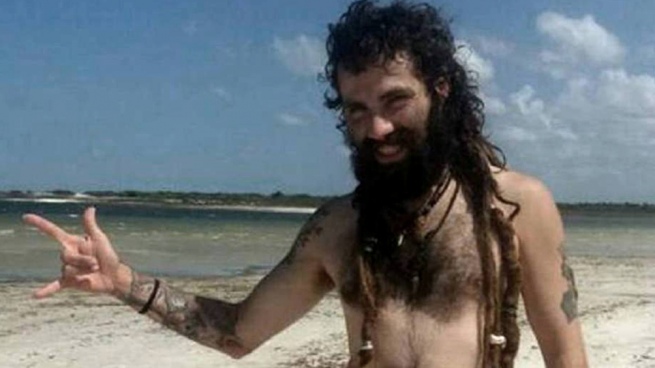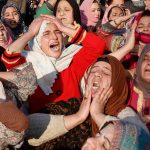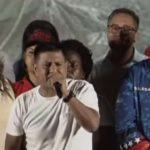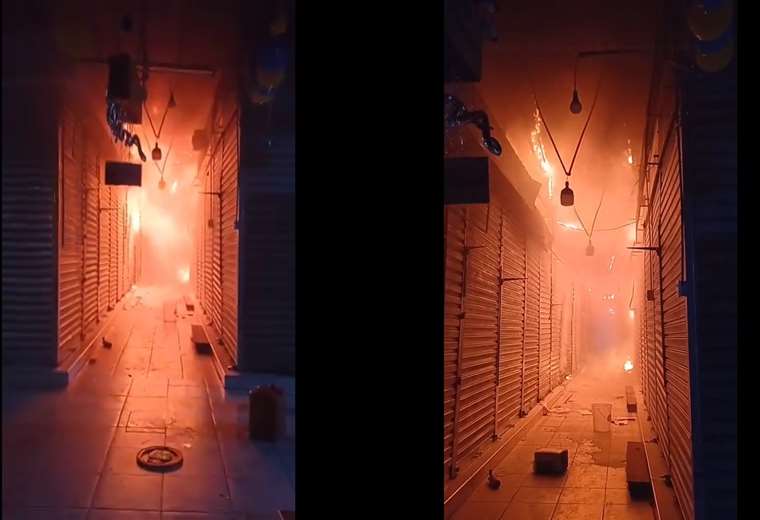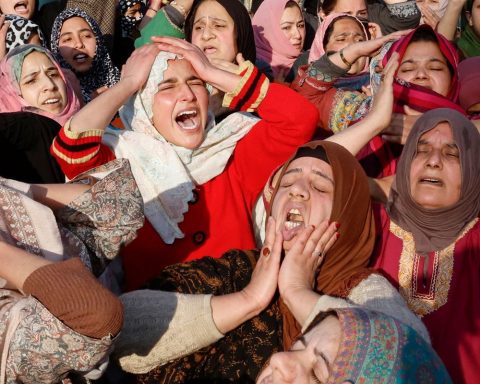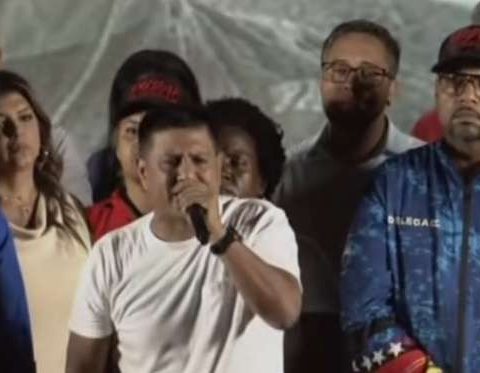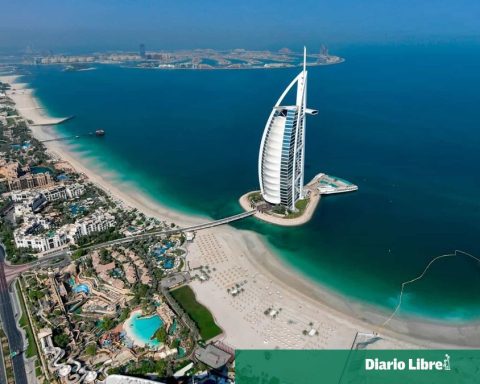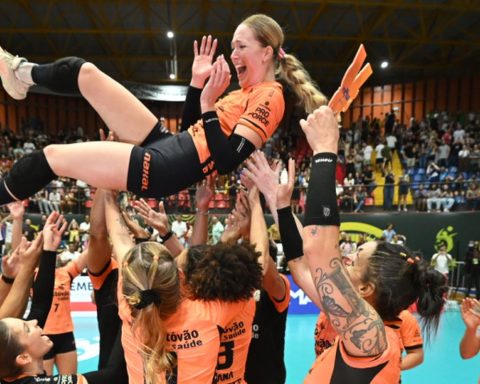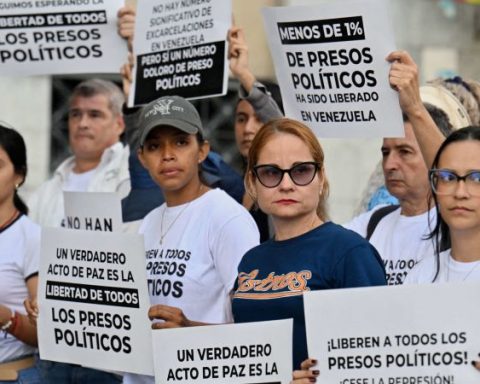Five years after the disappearance of Santiago Maldonado, which occurred on August 1, 2017, his brother Sergio reported the status of the case, which has been “paralyzed for two years in the Supreme Court” pending the appointment of a judge to “really investigate” what happened to the young craftsman.
“Nothing was done, the case has been paralyzed in the Court since March 2020, waiting for it to be investigated as ‘forced disappearance’ and for another judge to be appointed”affirmed in statements to Télam Sergio Maldonado in reference to the cause that investigates the death of his brother, who was found lifeless after having been missing for 78 days after a repression carried out in August 2017 in Chubut by agents of the Gendarmerie.
To date, the file “has no guilty or responsible convicted.”
Sergio Maldonado also referred to the last presentation made last October before the highest court, and in which the appointment of a new judge who “truly investigates” was demanded, given the lack of speed in the resolution of the file in charge of the Magistrate Gustavo Lleral.
“We have already challenged Lleral four times, he did not even reconstruct what happened on August 1, 2017, we appealed for another judge to be appointed, he seized on that to say ‘I am not going to do anything until they resolve what they’re going to do with me, I can’t do anything different because I’ve already given my decision'”, Maldonado maintained.
Lleral had closed the case in November 2018after ruling drowning as the cause of death of the young man and exempting the accused gendarme Emmanuel Echazú from responsibility, who was part of the repressive operation in the Pu Lof community on August 1, 2017.

“Not taking a statement from the new witness, for example, is one more example of the lack of commitment to the cause and, also, a drop in line or a form of intimidation of the rest of the people who want to testify,” Maldonado said. about the recent statement of a member of the Gendarmerie health personnel of Esquel’s 36th Squad.
Sergio pointed out that the witness, with a reserved identity, testified for four hours in front of the federal prosecutor of that city, Federico Baquioni, to whom he told that the day after the repression in Pu Lof “Dávila Felipe and Jorge Espejo attended his office.” , commenting that “they had arrested in the area of the Benetton field” a person whom they referred to as “the hippie”.
In a recent post on his social networks, Maldonado stated that the witness, in her statement to Baquioni, referred to having heard that “Ahumadita had sent the shit of the century” and that apparently “Chuqui (nickname with which they identify the second chief of squad 36, Juan Pablo Escola), had given the order and Ahumada had carried it out.”
On August 1 at 5:00 p.m. in Plaza de Mayo#5YearsOfImpunity #JusticeForSantiagoMaldonado#TheStateIsResponsible pic.twitter.com/nGctqPIiRj
– Sergio Maldonado (@vikingomaldo) July 28, 2022
“We know other people who can provide a lot of information to continue adding and unlocking this, but how do we continue to dump testimonies if there is no judge to investigate?” Sergio questioned.
Also, Santiago Maldonado’s brother recalled the multiplicity of irregularities that occurred during the investigation: adulterated Gendarmerie action books, incomplete recordings of the operation, the burning of evidence, the illegal cell phone espionage of his family and the lack of analysis of the contradictions that arise from the testimonial statements given by the gendarmes, among others.

Nor can the “paradox” be set aside that the lifeless body of Santiago appeared on October 17, 2017, in the Chubut River, 400 meters upstream from where it was last seen, in the same place where more Of 400 troops from the different security forces – with helicopters, drones and sniffer dogs – they had found nothing.
Likewise, the disappearance and death of the young man cannot be understood without placing them in the context of the violent repression that involved the persecution of Pu Lof members with rubber bullets, and of a broader and long-standing context linked to access to the territory of the indigenous peoples of Patagonia.
The opinion of CELS
In this sense, the director of Justice and Security of the Center for Legal and Social Studies (Cels), Manuel Tufrónoted that The rights that have been recognized in the Constitution and in different laws that peoples have to access their ancestral lands are not fulfilled, and that “provincial governments and many private interests hinder this possibility of access.”
In turn, Tufró remarked to this agency that “Maldonado’s disappearance and death occurred in the context of a plan implemented” by the government of Mauricio Macri to “repress the Mapuche community.”
“The previous government, at the explicit request of the Rural Society of Patagonia, advanced with a repressive plan that involved, among other things, deploying federal forces and carrying out illegal intelligence practices to spy on these communities,” he said.
Likewise, Tufró referred to subsequent investigations into how they acted during the repressive operation, such as the one carried out by the Prosecutor against Institutional Violence (Procuvin) and even a review carried out by the Ministry of Security itself, already under another management, which showed that “That day there were a lot of irregularities and situations of excessive violence.”
“The gendarmes who entered there were not prepared or trained to deal with situations of social conflict, there were problems in the design and in the totally violent execution of the operation”he indicated.
Tufró expressed the need for the judicial investigation to advance in reconstructing these aspects in order “to be able to determine the responsibilities of the gendarmes but, above all, of those who ordered and implemented the operation.”

Meanwhile, when Sergio Maldonado says that “nothing was done” he refers to what was issued in September 2019 through the ruling of the Criminal Cassation Chamber on four points of the expert report that needed to be explained and expanded, but were not yet investigated.
These four key points are: the date of death, the presence of pollen adhered to the clothes, the report on the identification of algae, which is relevant for the diagnosis of death by submersion, and the appraisal of the cane and bills found together to the body to determine how long they remained submerged.
Maldonado argued that “Time passes and we move further and further from the truth, evidence is being lost, we do not know where Santiago’s belongings are to analyze them, if they took care of them”and added that “if the judge himself broke the chain of custody of the DNI, I don’t want to imagine where all the things should be lying.”
“It is a chain of responsibilities that no one wants to investigate because there the responsibility includes even the Judiciary itself,” he said.
Santiago would have turned 33 this July 25. Five years after his death, there are plenty of doubts and answers are lacking.
This Monday from 5:00 p.m., in the fifth commemoration of his disappearance, family and friends, together with human rights organizations and social organizations, will gather in Plaza de Mayo to demand, once again, justice and truth.
